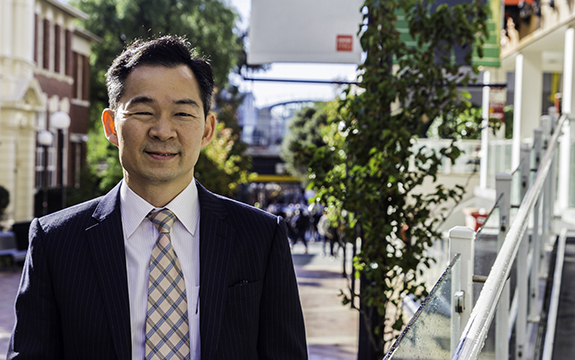Professor Alan Kin-tak Lau elected to European think tank

In Summary
- Swinburne Pro Vice-Chancellor (Research Performance and Development) elected Member of the European Academy of Sciences and Arts.
- One of only three academics in Australia to receive this honour.
- The Academy connects 1800 scientists worldwide.
Professor Alan Kin-tak Lau, Pro-Vice-Chancellor (Research Performance and Development) at Swinburne University of Technology has been elected a Member of the European Academy of Sciences and Arts.
The Academy is one of the biggest think tanks in Europe, connecting about 1800 scientists worldwide, among them 32 Nobel Prize winners. To date only three academics in Australia have received this honour.
Professor Lau recently joined Swinburne to oversee research performance and drive rankings development, engagement and improvement activities.
He is an internationally recognised researcher having achieved around 9000 citations with an h-index of 45. His specialist research area is on bio-composite, smart composite and nano-composite materials.
In the past ten years, he has received numerous research and teaching awards.
As a Member of the European Academy of Sciences and Arts Professor Lau will work with a team of scholars looking at scientific issues related to European countries.
Prior to his appointment at Swinburne, Professor Lau held the position of Alex Wong/Gigi Wong Endowed Professor in Product Design Engineering and Associate Dean (Industrial Relations) at The Hong Kong Polytechnic University, playing an active role in supporting that university‘s rapid rise in international rankings in recent years.
He is a Fellow of many professional and scholarly associations.
Professor Lau will join the European Academy of Sciences and Arts Festive Plenary Session in Salzburg, Austria on 4 March 2017 to receive his appointment certificate.
European Academy of Sciences and Arts
As an independent knowledge pool the Academy aims to discuss current issues across different academic fields and cultures as well as promoting transnational dialogue for the good of those living and working in Europe.
It focuses on three areas:
- development of knowledge,
- dissemination of scientific information, and
- implementation of international projects

